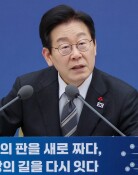Trump to drop out of TPP
Trump to drop out of TPP
Posted November. 14, 2016 07:27,
Updated November. 14, 2016 07:38
U.S. President-elect Donald Trump intends to drop out of the Trans-Pacific Partnership (TPP) within the first 100 days in office as president and this causes an alarm on the South Korean government's trade policy.
Ripping up the TPP was not included in his plan for his first 100 days in office right away. However, we cannot exclude the possibility of an intense renegotiation or complete abolishment of the Korea-U.S. Free Trade Agreement. The U.S. and other nations have asked South Korea to participate in the TPP directly and indirectly since early 2010. But the South Korean government has not officially announced its participation in the partnership.
Trump’s decision to withdraw from TPP deal will be a critical turning point of South Korea’s trade policy as it is a signal of adopting the protectionism of the world’s largest economy as actual policies.
Experts are increasingly predicting that the incoming U.S. government will make a move on the Korea-U.S. Free Trade Agreement in some ways after cancelling the TPP. For the South Korean government, which first predicted a fine adjustment of certain provisions such as automobile tariffs, it has become an urgent matter to deal with. Some argue that Seoul fails to develop detailed logics with regard to the trade policy towards Washington by vaguely expecting that there will be no changes in the bilateral FTA as it considers that Hillary would be the next president of the U.S.
The South Korean government began to prepare countermeasures on this issue belatedly. The Ministry of Trade, Industry and Energy decided to expand and reorganize the council which is in charge of the U.S. trade to review the policy and to establish dialogue channels with the government and congress of the U.S. It also announced to set up a working group to monitor challenges faced by exporter and other trade issues in real-time.
Sang-Hun Lee january@donga.com







